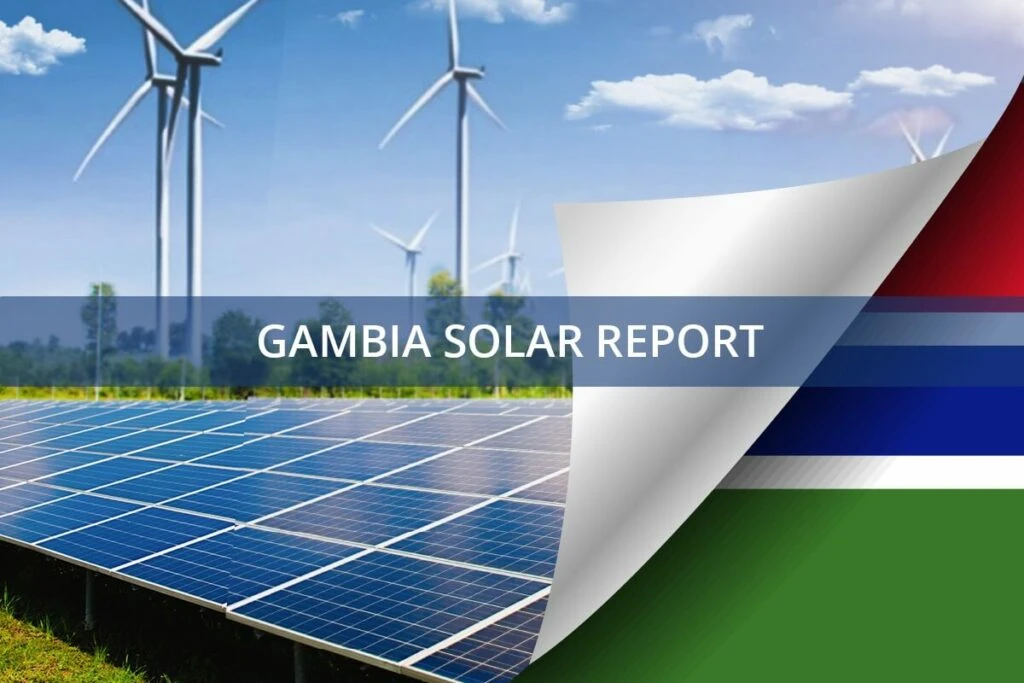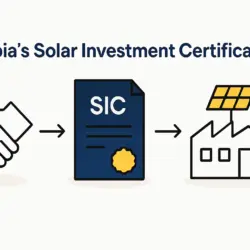The Gambia Powers Up with Gambia solar net-metering Policies
The Gambia is taking a significant step towards a sustainable energy future, set to implement a new net-metering policy specifically designed for solar PV systems under 50 kW. This forward-thinking move will allow consumers, from homeowners to small businesses, to supply excess electricity they generate back to the national grid and receive valuable credits on their electricity bills. This initiative is a cornerstone of the country’s broader efforts to expand renewable energy and drastically reduce its long-standing reliance on fossil fuels.
A Key Part of a Broader Climate Strategy with Gambia solar net-metering
This policy is not happening in a vacuum. It is a direct outcome of The Gambia’s commitment to a robust climate action strategy, supported by a Measurement, Reporting, and Verification (MRV) framework. This framework provides a structured and transparent approach to tracking climate-related projects, ensuring their effectiveness. Recent progress within this framework has unlocked the potential for these net-metering and solar PV projects, not just in The Gambia but also in neighboring Liberia, signaling a regional push towards sustainable development goals and clean energy adoption. By empowering individuals to become active participants in the energy market—a model that has proven successful for homeowners in countries like Germany—net-metering not only promotes clean energy but also contributes to greater grid stability.
Powering Progress with Large-Scale Investments in Gambia solar net-metering
While the net-metering policy targets smaller-scale producers, it runs parallel to massive investments in utility-scale solar infrastructure. The Gambia has been actively boosting its renewable capacity, which is crucial given that solar currently accounts for only about 15% of the country’s 157 MW production capacity, with the rest dominated by diesel and oil. Landmark projects, such as the inauguration of a 23 MW solar power facility with 8 MWh of battery storage, showcase this commitment.
This progress is backed by significant funding, including an $80 million investment to construct a 23 MW solar plant aimed at transforming the nation’s energy landscape. These large projects, including those under the Gambia Electricity Restoration and Modernization Project (GERMP), create the backbone of a resilient grid that can seamlessly integrate and support thousands of smaller, net-metered systems.
Building a Sustainable Solar Ecosystem in The Gambia with solar net-metering
The success of this nationwide Gambia solar power project hinges on accessible and reliable technology. As solar panels become more common on rooftops across the country, a deeper understanding of the technology is essential for sustainable growth. This includes everything from the basics of solar panel manufacturing to the intricate solar panel manufacturing process that turns simple solar panel raw materials into power-generating assets. Developing local expertise in installation and maintenance, supported by initiatives like the REPGam project which trains Gambians in renewable technologies, is key to maximizing the benefits of this solar boom.
The Gambia’s introduction of a net-metering policy is a powerful signal of its ambition. By combining consumer-level incentives with major national investments, the country is creating a comprehensive strategy to achieve energy security, reduce carbon emissions, and foster sustainable economic development. This dual approach ensures that the benefits of the solar revolution are felt at every level, from individual households to the national economy.
Are you interested in learning more about the intricacies of the solar industry, from production to policy? Dive deeper into the world of photovoltaics by signing up for our free solar industry e-course.



